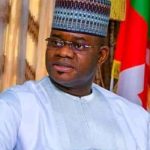The political landscape of Nigeria is getting more tensed as the country prepares for the 2023 general elections. The tension is though not because Nigeria has a chronic history of electoral violence that is unavailable in order climes, but because the forthcoming elections have the capacity to determine the socio-political, and geographical cohesion of the country. The leadership infrastructure of the State would once again be evaluated through the ballot, thereby putting to the test the crucible of the state’s electoral capability.
The Igbo, one of the dominant tribes in the State is set to prove to the rest of the tribes and the world at large that she is not a political Chihuahua in national politics and would leave no stone unturned in order to realize her ambition to produce the next President since the Ceremonial Presidency of Nnamdi Azikiwe and the brief military stint of Major General Aguiyi Ironsi. The answer to the question on whether or not the Igbo are ready and can actualize that noble ambition is largely hinged on the good political legacies of their noblest heroes past and what they have done or choose to do with them.

Igbo presidency is the agitation by the Igbo people to produce the next President of the Federal Republic of Nigeria on grounds of equity, justice and fairness. Between 1960 and 2022, Nigeria has witnessed not less than sixteen dispensations of leadership -civilian and military- at the helm of affairs, of course, with General Olusegun Obasanjo; a Yoruba man, as the national bulwark twice. There are three dominant ethnic groups in Nigeria: Yoruba, Hausa, and Igbo. Out of the three dominant ethnic groups, Yoruba has ruled for about
For the past five decades, the agitation for Igbo Presidency has been on, although not as pronounced as it is now. As I have pointed out earlier, it is not that the Igbo have not produced a President before. In fact, they have produced a President and a Head of State. However, the administration and the regime were short lived. Both ended within two years, nine months and twenty nine days or thereabout in involuntary and chaotic circumstances. The two administrations, with their flaws, nevertheless left flawless indelible political legacies for the Igbo and Nigerians at large.
Firstly, that the idea of an Igbo Presidency is achievable with the right machineries and attitudes. Secondly, that the Igbo are no political quarks in Nigeria’s take off and other developmental stages. For instance, the Aguiyi Ironsi regime of January 16, 1966 to July 29, 1966 demonstrated a clear incisive preparedness for governance. Thirdly, that the Igbo are not intolerant of nationalistic ideas; the very fulcrum of Nnamdi Azikiwe’s existence.
There are a host of other legacies like educational sophistication, alliances, industriousness tolerance, compromises and dialogue among others. Exceptionally applaudable is the Igbo Presidency reinvigorated by Peter Obi, the Presidential flag bearer of the Labor Party, for deploying the appropriate amount of industriousness required to carefully birth the Nigerian new era which is believed by a good number of citizens to be capable of emancipating the ordinary Nigerians from the military oligarchy reinventing itself with democratic grandioseness.

The Igbo have not completely healed from the consequences of the 1967 to 1970 civil war. It seems they are still politically traumatized, hence, the distrust towards every other major ethnic groups in Nigeria. The Igbo appear to be too emotive politically thereby short-circuiting the flow of strength required to move on. How can the Igbo forge ahead with memories of hurt and hatred emblazoned on their hearts towards the same set of persons who would make them President? Yesterday’s villain is today’s electorate. Nothing is really permanent in politics, not even interest; may be survival. Report has it that the great Aguiyi Ironsi bade goodbye to his young son Thomas who witnessed his father being taken away by the mutineers in 1966 saying “Do not take revenge”.
This unforgiveness has become a siege to the realization of the long overdue aspiration of the Igbo. For instance, if there is resentment from the Igbo towards the Yoruba because of a perceived role played by the great Yoruba leader; Awolowo for the “all is fair in war’’ approach, how about Adekunle Fajuyi, a Yoruba man who was loyal to Ironsi even at the cost of his life or Wole Soyinka who supported the Igbo struggle during the war, earning him incarceration. Unforgiveness and other forms of corruption of the good legacies like: rigid political fixation, no true face of Ndi Igbo Leadership, personal greed of politicians of the Igbo extraction, lack of common Igbo interest more than anything or anyone else are the real enemies of the Igbo dream.

In the name of fairness, Nigeria should not as of today believe that it has sufficiently placated the Igbo. Regardless of the distrust between the North and the East as a result of the July 29, 1966 events and its aftermath, Nigeria must create an atmosphere that makes it possible for the East and the North to heal. Afterall, that much was extended the West after MkO’s election result was annulled and gruesomely murdered. Few years later, OBJ became the President and Yoruba was pacified.

Furthermore, Nigeria must adopt the Falae/Obasanjo Presidency rotation model of North and South. This model will help ensure stability in the polity as there would only be just two belts to choose from. The six geopolitical zones are carved out from the Northern Belt comprising: North East, North West and North Central, and the Southern Belt comprising: South East, South West, and South South. The Igbo can then forge alliances with their immediate southern counterparts and neighbors to produce an All Southern Peoples’ Candidate (ASPEC).

The Igbo must embrace the charismatic legacy of alliances, rather than combative and confrontational campaigns against the people who have being their most pronounced allies. Igbo must desist from hating on or picking fight against anyone who –for whatever reason- does not believe in Peter Obi’s Presidency. After all, democracy preserves liberty of thought and accords every eligible voter the right of choice, and that right includes the right not to follow the crowd. An electorate’s single vote in an election is his voice for the next four years.
It is already bad enough for him if it turns out he made a wrong choice. He should not be witch-hunted while exercising that innate right. The Igbo and their supporters must quench the inferno of hatred prepared for every opposition of Igbo Presidency and understand that even at gun point, not all Igbo will vote for Peter Obi and those who choose not, are still modest Igbo nonetheless. A master craft of Northern military oligarchy displaced the Igbo since July 29 1966 and five decades later after several Igbo struggle and violence, the Igbo still remain predominantly subjugated. The Igbo must understand that violence before strategy and political think tank will only multiply their sorrow in the land.





Leave a reply